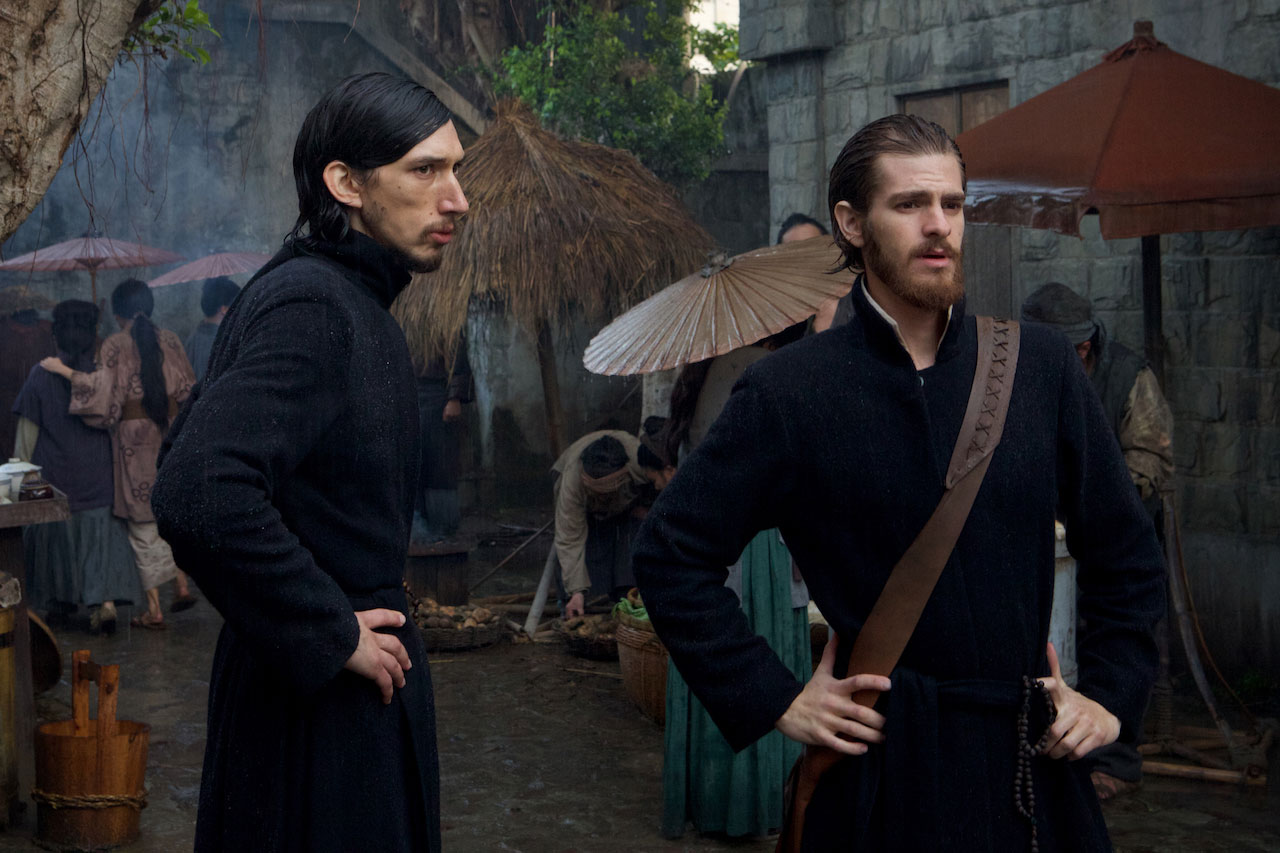
The film operates with an ambitious canvas, unfolding with stately elegance, but it is Scorsese’s existential dissection of Christian theology that lends it its thought-provoking, even compassionate, power.
Rating: 4 stars / A-
“I pray but I am lost. Am I just praying to silence?”
A film that unfortunately didn’t catch a good whiff of the awards buzz, landing only a solitary Oscar nomination for Best Cinematography for Rodrigo Prieto, who is one of the masterful if underrated cinematographers working today, having lensed amongst others the early films of Alejandro Gonzalez Inarritu, Lee Ang, and Scorsese’s The Wolf of Wall Street (2013).
He should win his first Oscar for the breathtaking work in Silence, a film that has been gestating in Scorsese’s mind for nearly thirty years. It is his passion project, shot largely in the remote natural landscape of Taiwan, and concludes his ‘religious trilogy’ that began with The Last Temptation of Christ (1988), one of the director’s greatest works, and Kundun (1997), arguably his most beautiful film.
Silence’s slow (I prefer to use the word ‘meditative’) pacing is not for everyone, but turning 75 later this year, any new picture from Scorsese is a privilege to see on the big screen. Andrew Garfield and Adam Driver star as two Jesuit priests who travel to Japan to spread Catholicism and to search for the missing Father Ferreira (Liam Neeson). This is the 17th century, a time of brutal religious persecution, and their journey is ridden with terrifying dangers.
The title ‘Silence’ refers to both the silence of God, and the silence of believers, a duplicitous condition marked by a continuous and unbearable psychological torment. Scorsese, who co-wrote the screenplay with Jay Cocks, adapted from Shusaku Endo’s novel (first adapted by Shinoda in his 1971 film), lets the film operate with an ambitious canvas. Running twenty minutes short of three hours, this is an epic with startling intimacy.
Its unhurried pacing also unfolds with stately elegance—almost every other shot holds a hypnotic power that lures us into an old world. A scene as a procession exits a forested area echoes Kurosawa’s first short in his omnibus Dreams (1990), so are some of the Japanese courtyard scenes. But some of the film’s most indelible images show the Jesuit priests travelling by boat through the foggy night, surely a direct homage to Mizoguchi’s monumental masterwork, Ugetsu (1953).
Silence is also arguably Scorsese’s quietest film, with almost a non-existent score, and lots of inner existential rumination manifesting as voiceovers. The film is not an affirmation or critique of Christian theology, though it does challenge us to not act in blind faith which is sometimes conflated with spiritual strength.
Silence’s compassionate power ultimately makes this a work about humanity’s lifelong struggle to come to terms with mortality. The greatest paradox—itself a torment—is that religion seems to bring about pain inasmuch as it helps to deal with that suffering.
Review #1,412 / © Eternality Tan http://filmnomenon.
